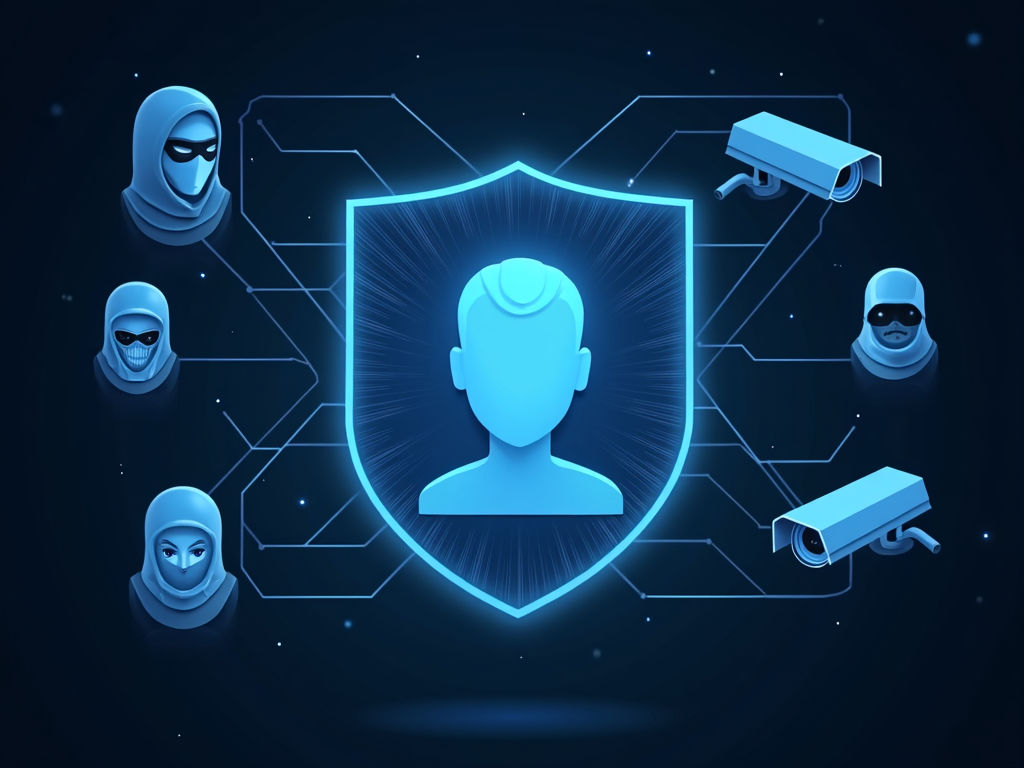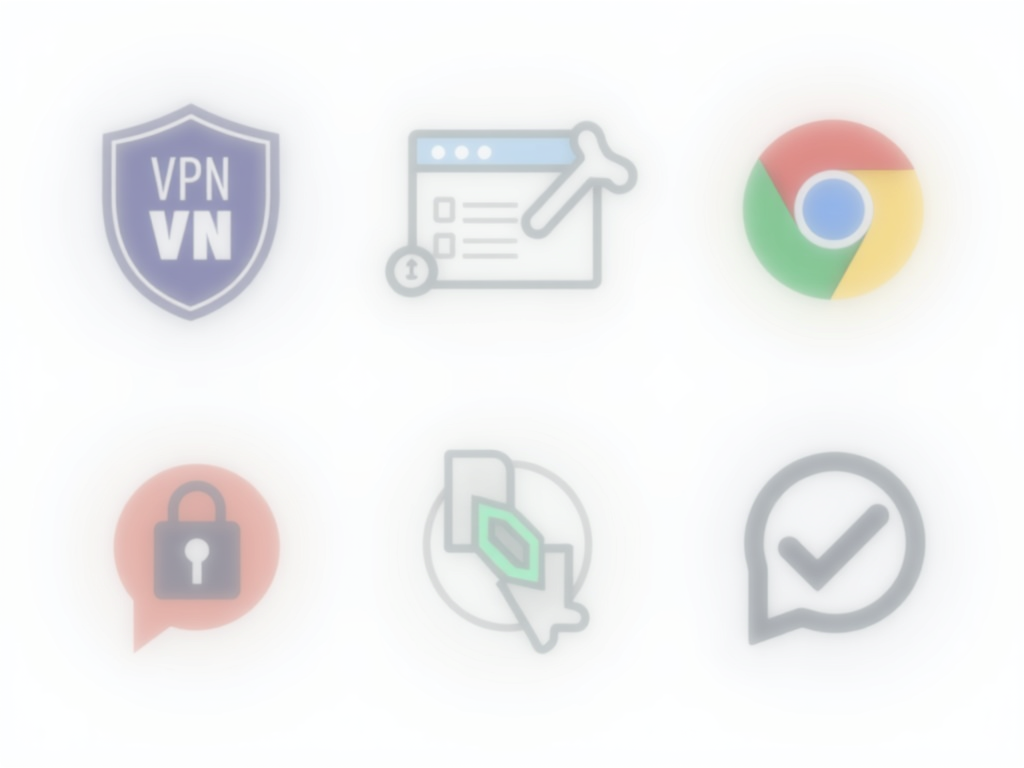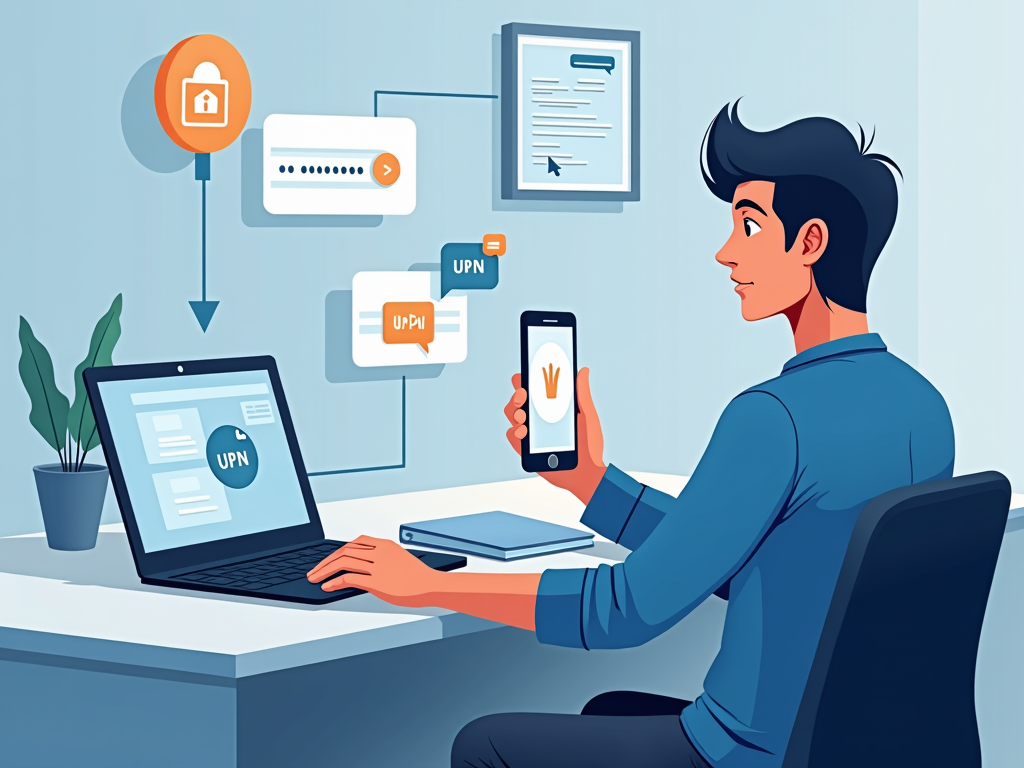Best Privacy Tools for Online Safety in 2025: Your Ultimate Guide
In 2025, online privacy is more important than ever. With data breaches, surveillance, and the growing value of personal information, protecting your digital footprint is crucial. This guide explores the best privacy tools for online safety in 2025, offering simple, actionable steps to safeguard your data. Whether you're new to online privacy or looking to upgrade your defenses, this article will help you navigate the landscape with confidence.
Why Online Privacy Matters in 2025
The internet has become a double-edged sword. While it offers convenience and connectivity, it also exposes us to risks like identity theft, data mining, and invasive tracking. In 2025, the stakes are higher as technology advances and data becomes more valuable. Protecting your online privacy isn't just about avoiding ads—it's about securing your personal and financial information from malicious actors.

Top Privacy Tools for 2025
Here are the best privacy tools for online safety in 2025, each chosen for its effectiveness, ease of use, and ability to protect your data in different ways:
- VPNs (Virtual Private Networks): VPNs encrypt your internet connection, hiding your IP address and making it difficult for anyone to track your online activity. Popular options include NordVPN and ExpressVPN, both known for their strong security features and user-friendly interfaces.
- Password Managers: Tools like LastPass and 1Password help you create and store complex passwords, reducing the risk of account breaches. They also offer features like two-factor authentication (2FA) for added security.
- Encrypted Messaging Apps: Apps like Signal and Telegram provide end-to-end encryption, ensuring that your conversations remain private. These are essential for anyone concerned about data interception.
- Privacy-Focused Browsers: Browsers like Brave and Firefox Focus block trackers and ads by default, offering a more secure browsing experience. They also prevent fingerprinting, a technique used to identify users based on their device settings.
- Data Removal Services: Services like Incogni help you delete personal data from data brokers and public databases, reducing your online footprint. More on how to set up Incogni later in this guide.

Simple Steps to Lock Down Your Online Privacy
Protecting your online privacy doesn't have to be complicated. Here are some simple steps to lock down your online privacy in 2025:
- Use a VPN: Always connect through a VPN when using public Wi-Fi or accessing sensitive information.
- Enable 2FA: Add an extra layer of security to your accounts by enabling two-factor authentication.
- Regularly Update Software: Keep your devices and apps up to date to protect against vulnerabilities.
- Limit Social Media Sharing: Be mindful of what you share online. Adjust privacy settings to control who can see your posts.
- Use Privacy Tools: Incorporate tools like password managers, encrypted messaging apps, and privacy-focused browsers into your daily routine.
These steps are easy to implement and can significantly enhance your online safety.
How to Set Up Incogni to Delete Personal Data
One of the most effective ways to protect your privacy is by removing your personal data from the internet. Incogni is a powerful tool that automates this process. Here's how to set up Incogni to delete personal data:
- Sign Up: Visit the Incogni website and create an account. You'll need to provide some basic information to get started.
- Grant Permissions: Incogni will ask for permission to act on your behalf. This allows them to contact data brokers and request the removal of your information.
- Monitor Progress: Once set up, Incogni will regularly update you on the status of your data removal requests. You can track which brokers have been contacted and which have complied.
- Stay Protected: Incogni continues to monitor and remove your data as new brokers emerge, ensuring ongoing protection.
Setting up Incogni is straightforward and can save you hours of manual work. For more details, check out this guide on data removal services from Privacy Rights Clearinghouse.

Comparing Online Privacy Tools
With so many online privacy tools available, it can be challenging to choose the right ones. Here's a quick comparison to help you decide:
| Tool Type | Key Features | Best For |
|---|---|---|
| VPNs | Encrypts internet traffic | Hiding IP address, secure browsing |
| Password Managers | Stores and generates passwords | Managing multiple accounts |
| Encrypted Messaging | End-to-end encryption | Private communication |
| Privacy Browsers | Blocks trackers and ads | Reducing online footprint |
| Data Removal Services | Deletes personal data from brokers | Minimizing data exposure |
Each tool serves a unique purpose, so consider using a combination for comprehensive protection.
Personal Insights: My Experience with Privacy Tools
As someone who values online privacy, I've tested numerous tools over the years. One standout is NordVPN, which I've used for secure browsing on public Wi-Fi. Its speed and reliability make it a top choice. I also rely on LastPass for managing passwords—its autofill feature saves time while keeping my accounts secure. For communication, Signal is my go-to app, offering peace of mind with its encryption. These tools have become essential in my daily routine, and I highly recommend them for anyone serious about online safety.

The Future of Online Privacy
Looking ahead, online privacy will continue to evolve. Emerging technologies like decentralized networks and blockchain-based identity systems promise greater control over personal data. However, as these technologies develop, so do the threats. Staying informed and proactive is key. For more insights, check out this report on future privacy trends from the Electronic Frontier Foundation.
Summary
In 2025, protecting your online privacy is essential. By using the best privacy tools for online safety, such as VPNs, password managers, and data removal services like Incogni, you can significantly reduce your risk. Remember to follow simple steps to lock down your online privacy, like enabling 2FA and limiting social media sharing. With the right tools and habits, you can navigate the digital world safely and confidently.